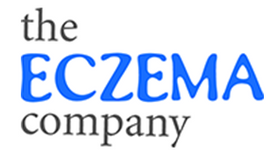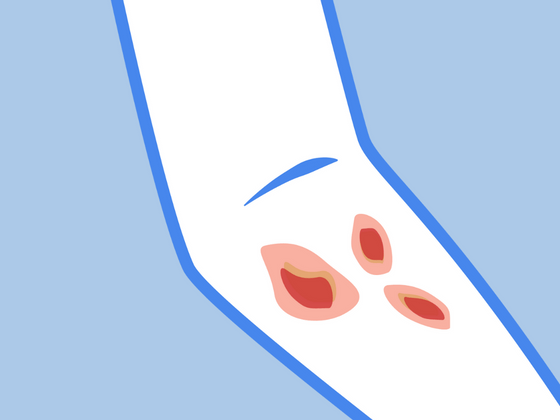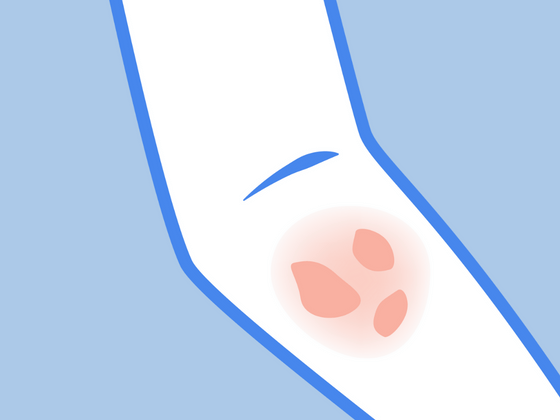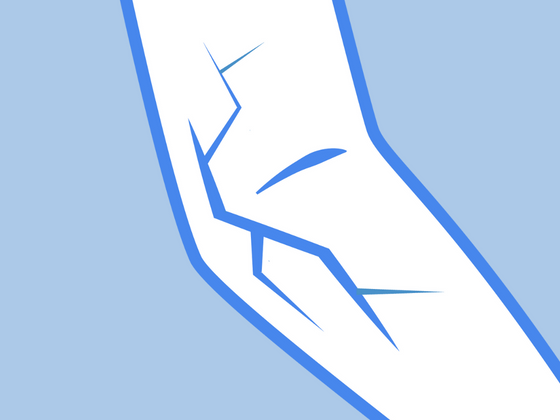With winter ending and summer just around the corner, everyone will be bringing out their t-shirts and shorts very soon. Not to mention - bathing suits.
Although eczema can flare during the summer, the sun actually provides a lot of good for eczema prone skin.
Discover why sun and eczema are highly compatible, as well as what to look out for in terms of protective sunblock and sun wear!
Sun and Eczema
Is sun good for eczema? Absolutely!
In fact a 2017 study showed that exposing one's skin to the sun releases a compound known as nitric oxide that can help reduce eczema symptoms. This compound is known to dampen inflamed skin. The study also showed that nitric oxide has powerful anti-inflammatory properties that could directly benefit eczema patients. [1]
However, sun exposure needs to be kept to a minimum. Burning skin can increase symptoms such as inflammation and irritation and can also increase your risk of skin cancer.
For all skin types - it's important to stay well protected in the sun, especially during peak sun hours. Eczema prone skin also needs to remain cool and dry to avoid further inflammation and irritation, so it's important to opt for clothing and skincare that offers UV protection
UV Skincare
Like previously mentioned, eczema and sunlight are highly compatible, but eczema prone skin requires additional protection.
One tricky find for eczema skin in the summer is actually sunscreen! In fact, so many sunscreen products on the market contain chemical or irritant ingredients that can further irritate skin.
Like eczema and sun are highly compatible, so are eczema and zinc! Opting for a non-nano zinc oxide can help solve this problem, as zinc is extremely beneficial for skin! It's great for reducing redness and inflammation. This Baby Badger Sunscreen SPF 30 with soothing chamomile and calendula and this Badger Sport Sunscreen SPF 35 are fantastic alternatives to more chemical sunscreens. Not only do they protect skin, but they work at healing eczema at the same time.
UV Eczema Clothing
Zinc oxide is an exceptional compound, especially for treating eczema prone skin. Not only can it be used in skincare, but there is also eczema clothing that uses zinc in its material composition.
YoRo naturals' Remedywear™clothing line has a unique fabric composition that consists of both TENCEL and embedded zinc fibers to soothe irritated eczema. The garments also offer 35-50+ UV protection that keep skin well protected from harsh UV rays. They're also extremely breathable which is a must when sitting out in the sun. The garments are medical in nature, so not meant for outdoor water play, but they do offer great protection when outdoors during peak sun time and serve a dual purpose to releive eczema inflammation at the saem time.
Remedywear provides clothing in all sizes and for all areas of eczema prone skin:
Remedywear Long Pants for Kids—light protective pants that can be worn under skin or as a dry wrap layer to heal sun exposed skin.
Remedywear Long Sleeve Shirt for Kids—breathable and soothing pants that protect legs, knees, buttocks, groin and much more. Feels almost like a second skin.
Remedywear Long Pants for Adults—made with super soft, silk-like fabric that is both cooling and breathable. Can double up as summer pajamas.
Remedywear Long Sleeve Shirt for Adults—perfect for treating chest, arm, back and stomach eczema. Can double up as summer pajamas.
Remedywear Eczema Sleeves for Adults and Kids— perfect for spot treating hard to reach areas like the back of knees or elbows.
Check out the full line of Remedywear clothing for eczema!
Remedywear was awarded the National Eczema Association Seal of Acceptance™.
Remedywear Sun and Eczema Protection

Remedywear clothing is not meant to replace surf/swim clothing.
References
1. Nitric oxide induces human CLA+CD25+Foxp3+ regulatory T cells with skin-homing potential. Yu, Cunjing et al. Journal of Allergy and Clinical Immunology. https://www.jacionline.org/article/S0091-6749(17)30924-7/
2. Zinc and atopic dermatitis: a systematic review and meta analysis. https://www.researchgate.net/publication/331350154...
------------------

Bio: Laura is a contributor and content developer for The Eczema Company. She is in no way a medical professional. Her comments, suggestions, and reflections are not intended to replace any medical advice. Always seek the help of a medical professional before undertaking any diet or lifestyle changes.








